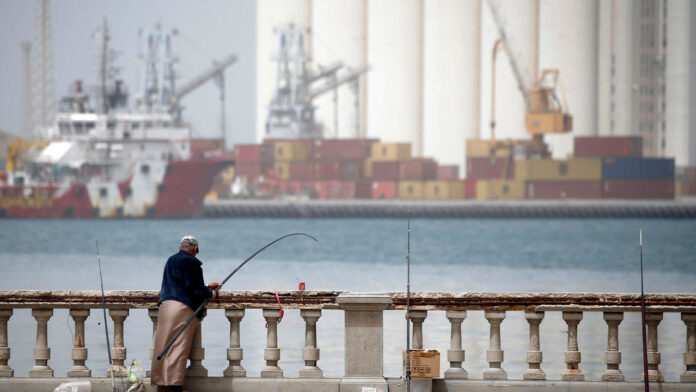Two months after the closure of the border between Tunisia and Libya, border crossings with Libya were reopened friday (September 17th), 2021, pending the resumption of flights to Tripoli, Maiteka and Benghazi benina airports starting thursday, September 23, 2021. The opening of the border follows the instructions of President Kais Saied to open it after he was briefed on the results of the meetings of the Tunisian-Libyan joint security and health ministerial committees held on Wednesday (September 15th) on the island of Djerba. On July 8, the Libyan government decided to close land and air ports with Tunisia due to the new CORONA virus outbreak. What are the implications of opening the Tunisian-Libyan border on Tunisian economic activity? Economist Ezzedine Saidan stressed to JDD-tunisie the importance of economic relations between Tunisia and Libya at all times and circumstances, which must be balanced to be permanent.
Libya faced a special situation of reconstruction, and if Tunisia guaranteed its share of Libya’s reconstruction, it would have very important impacts on the Tunisian economy in general and on the trade balance in particular, which had been severely affected 10 years ago, particularly in the recent epidemiological period.
Saidan said Tunisia has a surplus of production in many fields, and this surplus is looking for a nearby market by road due to its low cost, which strengthens relations and trade with neighbouring countries across land and sea borders. Tunisia’s exports of grains have grown towards Libya by more than 50 percent, reaching more than 24,000 tons between January 2021 and September 3, 2021, compared with 11,000 tons during the same period in 2020 despite the halt in export traffic to the Libyan market in the past two months. “Unlike many countries in the world, Tunisia’s relations with Libya are not only trade and economic relations, but cultural and family relations from time immemorial, which explains the state of complaints from citizens about the decision to close the border,” said Saidan, who said the social aspect of relations with Libya. “The closure of the border creates a situation of discontent and confusion for the economic institution, which has at times faced sudden obstacles and difficulties due to sudden and repeated closures, stressing that the closure of the border with Libya has a major impact on the Tunisian economy.
Adoption of a health protocol
During a meeting with Libyan Minister of Foreign Affairs Osman Jarandi on Wednesday, September 15, 2021, it was agreed to adopt a health protocol that would allow passengers who had received two doses of vaccination to be admitted with a negative analysis, and that unvaccinated travellers would be subjected to a 10-day compulsory stone at a hostel for the purpose. For his part, Director General of Health Faisal Ben Saleh, in a press statement Friday (September 17th), confirmed that Tunisia will create a meeting center at its consulate in Libya that will be special for vaccinating travelers to Tunisia so that they can enter Tunisian territory without being obliged to stay in the spaces of the compulsory quarantine. He stated that the ministry intends to increase the number of spaces for compulsory stone in The State of Medenin and will increase the list of hostels concerned with securing the residence of those who are sheltered by compulsory quarantine in this area, which includes the Ras al-Jedd crossing, which provides the main land crossing with Libya.
Rifi-JDD











